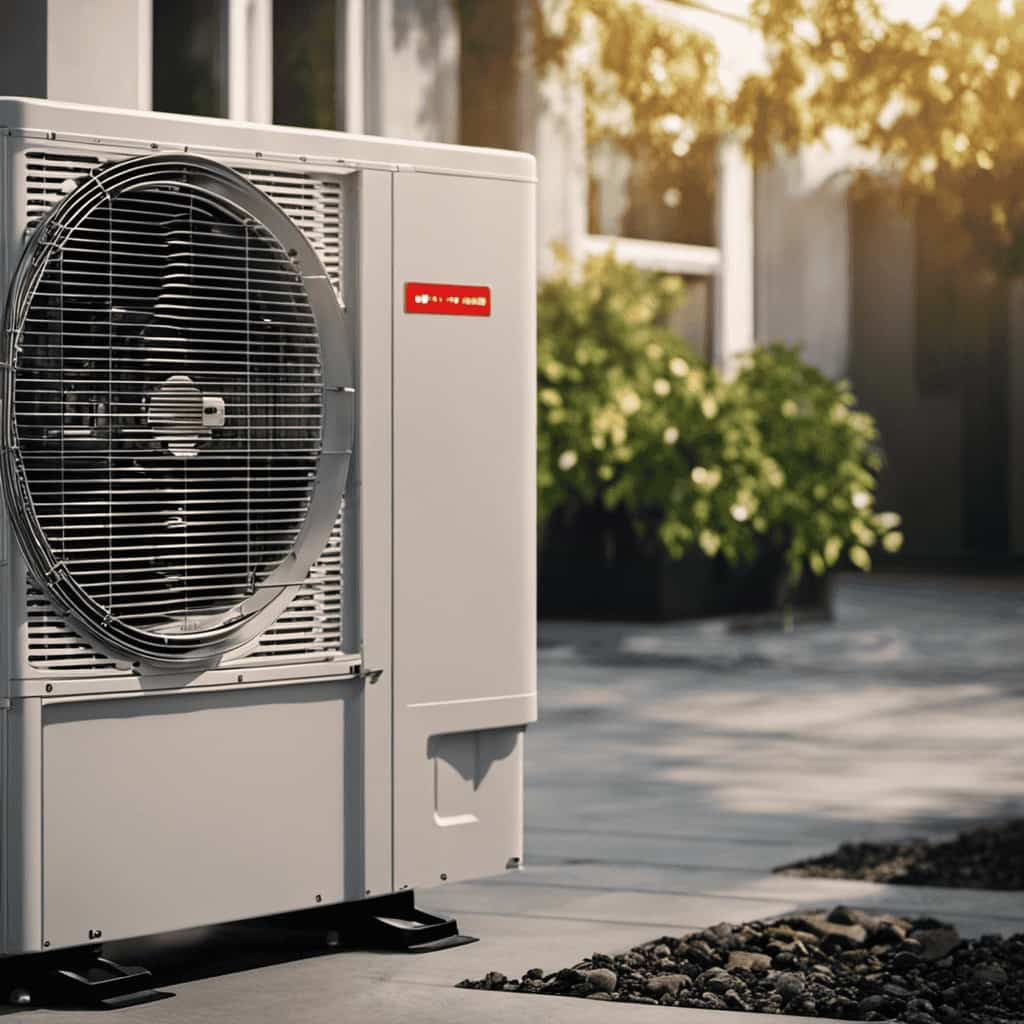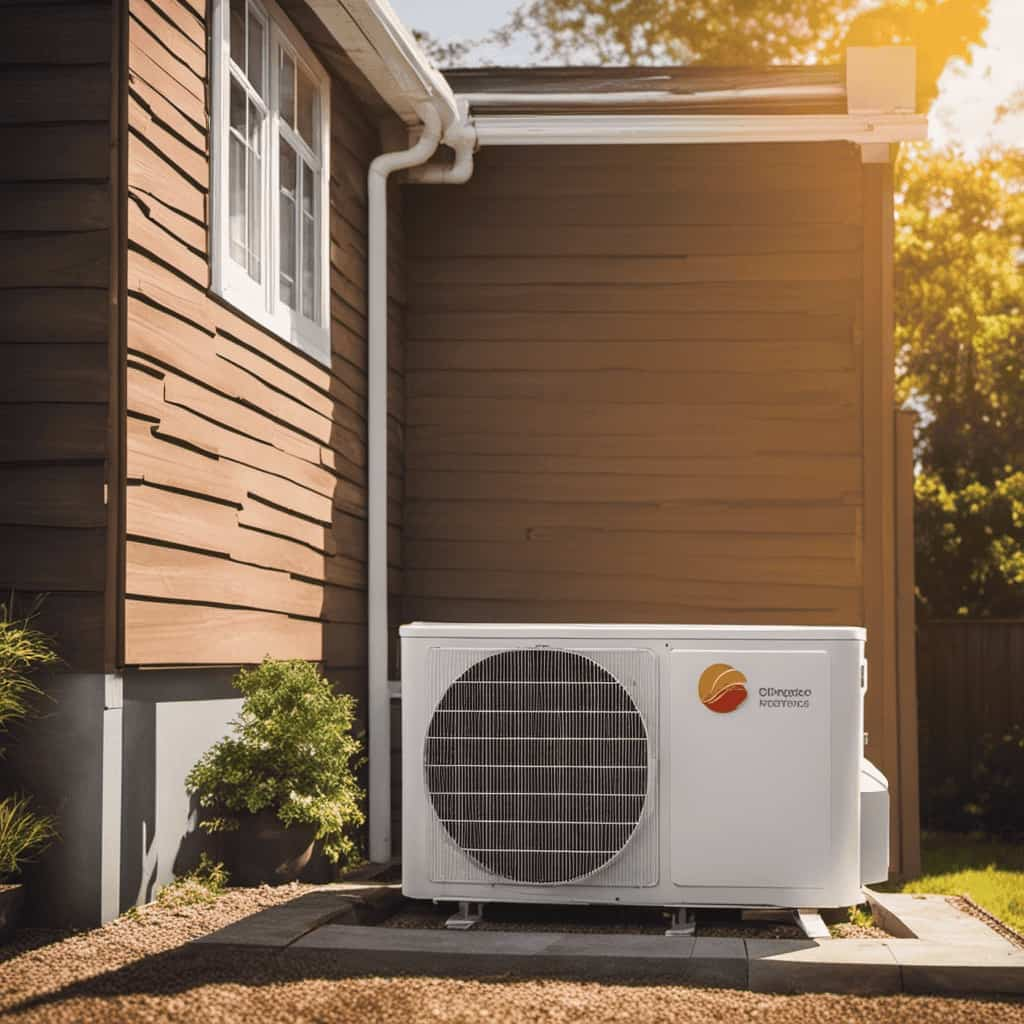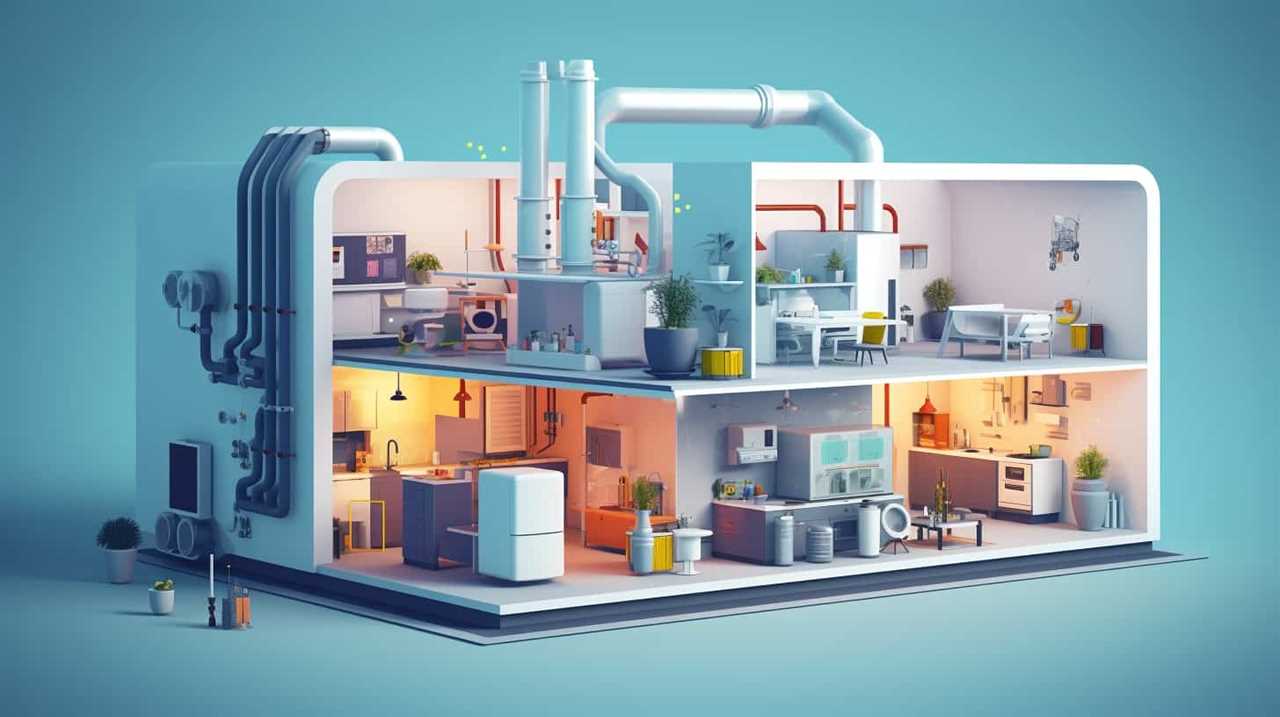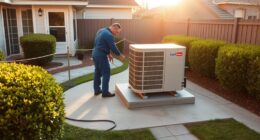We have discovered an innovative method for enhancing energy efficiency in households: residential heat pumps.
Did you know that heat pumps can reduce energy consumption by up to 50% compared to traditional heating and cooling systems? Not only will you enjoy significant cost savings on your utility bills, but you’ll also contribute to a greener planet.
With improved indoor air quality, year-round comfort, and easy installation and maintenance, residential heat pumps are the answer to your energy needs.
Let’s explore their benefits together.
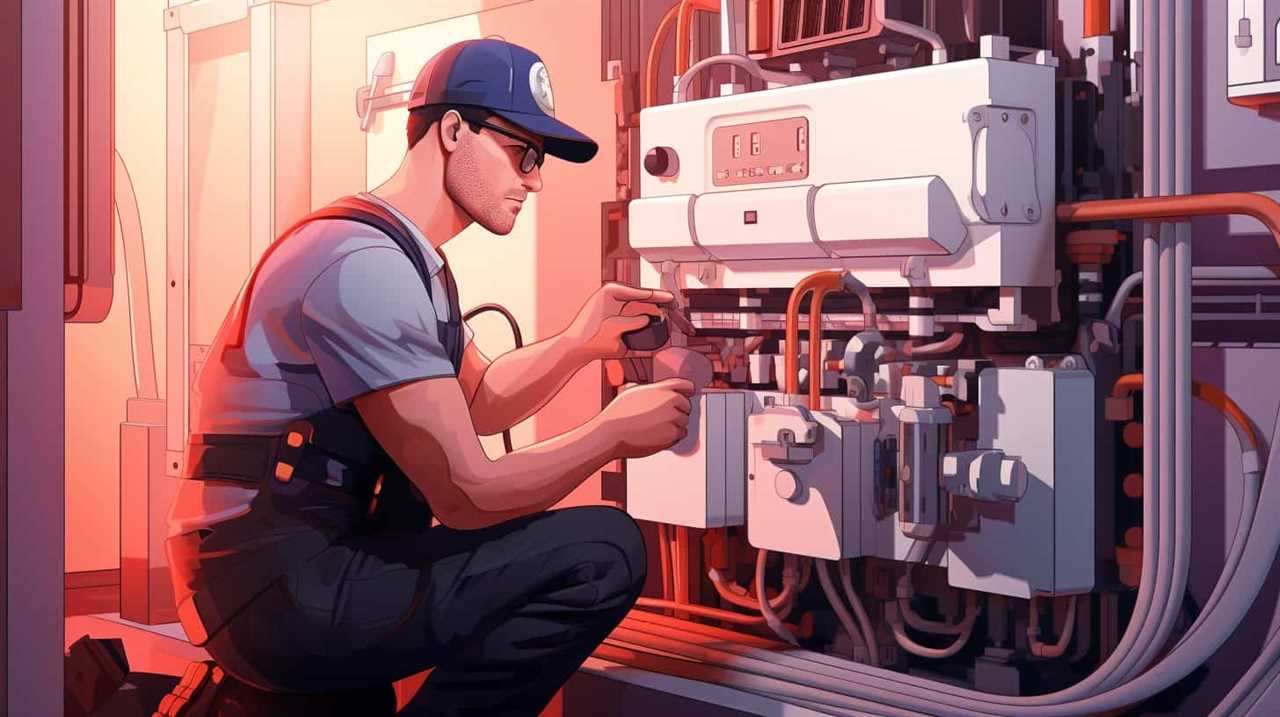
Key Takeaways
- Heat pumps reduce energy consumption by up to 50% compared to traditional systems.
- They significantly reduce carbon emissions and have a smaller carbon footprint.
- Heat pumps improve indoor air quality by reducing airborne pollutants.
- Residential heat pumps provide efficient temperature control throughout the year, ensuring year-round comfort and energy efficiency.
Energy Efficient Heating and Cooling
We love how heat pumps provide energy efficient heating and cooling for our homes. Heat pumps are an excellent example of energy efficient technology, offering sustainable home solutions that benefit both the environment and our wallets. According to the U.S. Department of Energy, heat pumps can reduce energy consumption by up to 50% compared to traditional heating and cooling systems. This is accomplished through the transfer of heat rather than the generation of heat, resulting in significant energy savings.
Heat pumps also have the ability to reverse their operation, providing both heating and cooling capabilities in one unit. By utilizing this innovative technology, homeowners can enjoy comfortable indoor temperatures while reducing their carbon footprint and saving on utility bills.
Speaking of savings, let’s now explore the cost savings associated with heat pump usage.
Cost Savings on Utility Bills
By implementing heat pumps, homeowners can experience significant savings on their utility bills. Heat pumps are a highly energy-efficient technology that can provide both heating and cooling for homes.
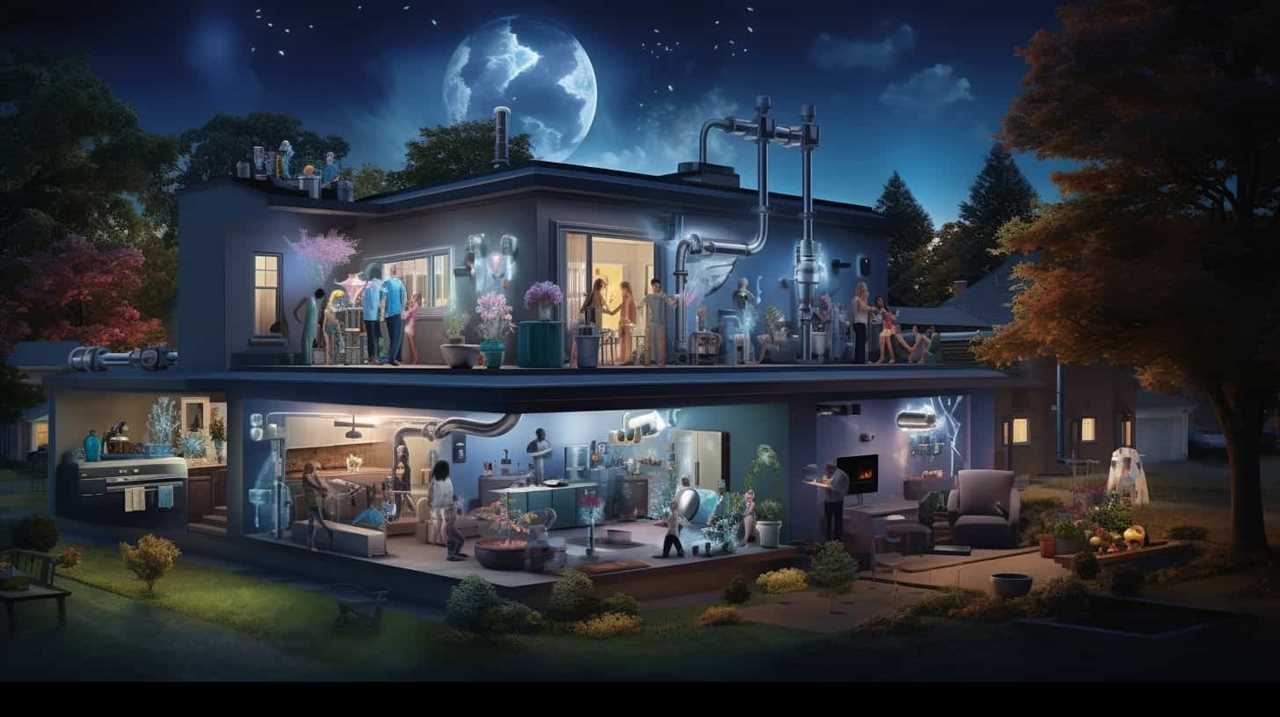
Compared to traditional heating systems such as furnaces or electric resistance heaters, heat pumps can save homeowners up to 30-50% on their heating costs. This is because heat pumps transfer heat rather than generate it, making them more energy-efficient.
Additionally, heat pumps can also be used for cooling during the summer months, further reducing the need for separate cooling systems and saving homeowners on their overall energy consumption.
While the upfront cost of installing a heat pump may be higher than traditional systems, it’s a long-term investment that pays off through reduced utility bills and increased energy efficiency.
Reduced Environmental Impact
Reduced Environmental Impact
Heat pumps offer a greener alternative for residential heating and cooling, reducing the environmental impact of traditional systems. Here are some reasons why heat pumps are a sustainable choice for home heating:

-
Carbon Footprint Reduction: Heat pumps operate by transferring heat from the air, ground, or water, rather than generating heat from fossil fuels. This significantly reduces carbon emissions, resulting in a smaller carbon footprint compared to conventional heating systems.
-
Energy Efficiency: Heat pumps are highly efficient, using minimal energy to produce heat. They can achieve remarkable energy efficiency ratios (EER) and coefficient of performance (COP), which translates to lower energy consumption and reduced environmental impact.
-
Renewable Energy Integration: Heat pumps can be powered by renewable energy sources, such as solar panels or wind turbines, further reducing reliance on fossil fuels and promoting sustainable home heating.
By choosing heat pumps, homeowners can make a positive impact on the environment by reducing carbon emissions and embracing sustainable heating solutions.

Now, let’s explore how heat pumps also contribute to improved indoor air quality.
Improved Indoor Air Quality
One key benefit of residential heat pumps is that they improve indoor air quality by reducing the number of airborne pollutants. Heat pumps are equipped with air purification systems that filter out dust, pollen, pet dander, and other allergens, providing cleaner and healthier air for occupants. These systems work by trapping particles in filters, preventing them from circulating in the indoor environment.
This is especially beneficial for individuals with respiratory conditions such as asthma or allergies, as it reduces their exposure to triggers and can alleviate symptoms. Additionally, improved indoor air quality can have a positive impact on overall health and well-being. Studies have shown that poor air quality can lead to various health issues, including respiratory infections and cardiovascular problems.
Year-Round Comfort
We can achieve year-round comfort by utilizing residential heat pumps in our homes. Heat pumps provide efficient temperature control throughout the year, helping to keep our homes cool in the summer and warm in the winter.
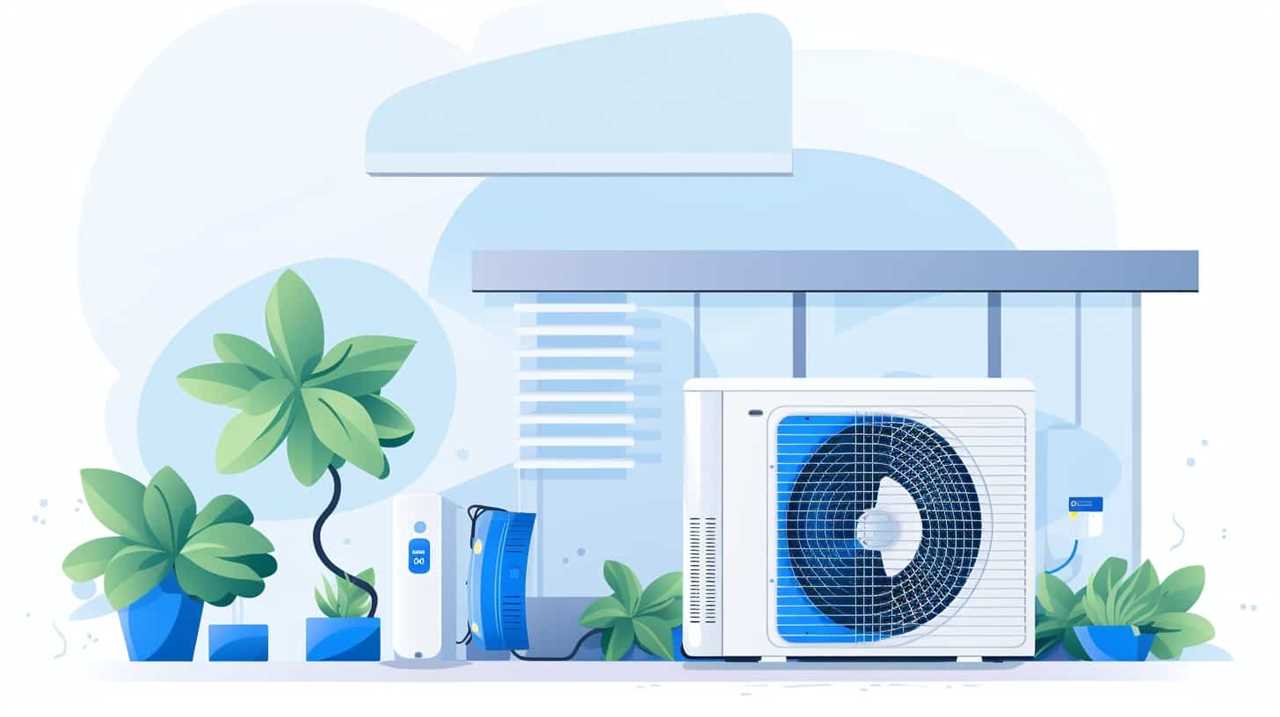
Here are three key benefits of using residential heat pumps:
-
Energy Efficiency: Residential heat pumps are designed to be highly energy efficient, resulting in lower energy consumption and reduced utility bills. They work by transferring heat from the air or ground into our homes, rather than generating heat, making them more efficient than traditional heating and cooling systems.
-
Consistent Temperature Control: Heat pumps offer precise temperature control, allowing us to set and maintain our desired temperature throughout the year. This ensures a comfortable living environment, no matter the season.
-
Environmentally Friendly: By reducing energy consumption, residential heat pumps help to lower our carbon footprint and contribute to a more sustainable future. They use renewable energy sources, such as the outdoor air or geothermal energy, making them an eco-friendly choice.
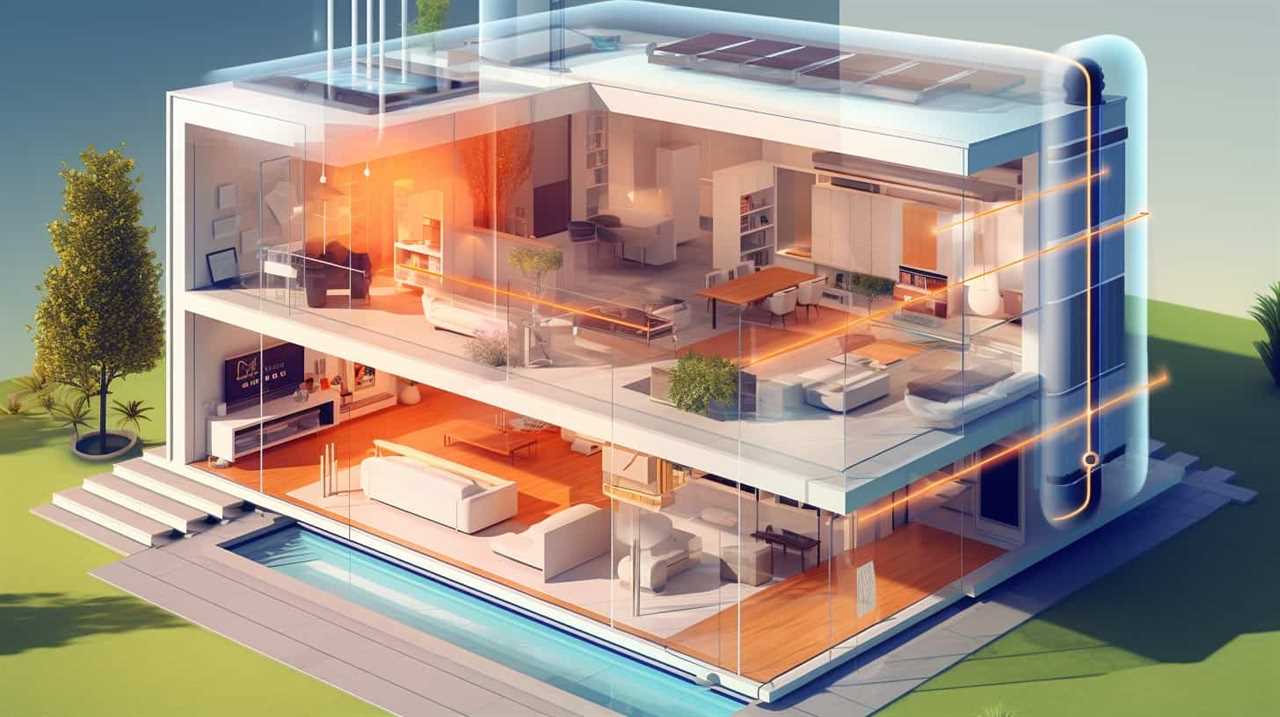
Easy Installation and Maintenance
Our experience has shown that residential heat pumps offer both easy installation and maintenance, making them a convenient choice for homeowners.
The installation process is straightforward and can typically be completed within a few days by a professional HVAC technician. The heat pump is installed outside the home, and the indoor unit is connected to the existing ductwork. This eliminates the need for extensive renovations or additional construction.
In terms of maintenance requirements, residential heat pumps are relatively low maintenance. Regular tasks include cleaning or replacing air filters, checking refrigerant levels, and inspecting the outdoor unit for debris. Annual professional maintenance is also recommended to ensure optimal performance and longevity.
Long Lifespan and Durability
Residential heat pumps offer a durable and long-lasting solution for home heating and cooling needs. When considering the longevity benefits and durability advantages of heat pumps, it becomes evident why they’re a popular choice among homeowners.
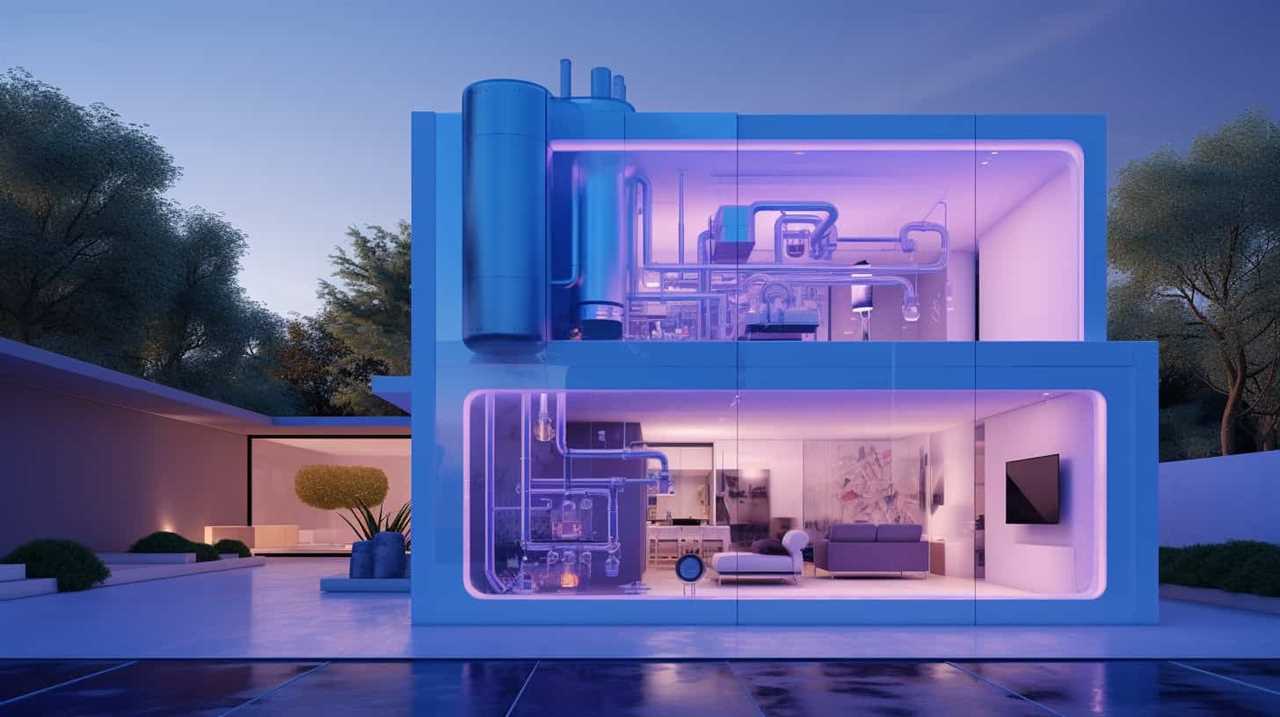
Here are some key reasons why heat pumps are known for their durability:
-
Robust Construction: Heat pumps are built with high-quality materials that are designed to withstand extreme weather conditions and regular usage.
-
Minimal Moving Parts: Compared to traditional HVAC systems, heat pumps have fewer moving parts, reducing the chances of mechanical failures and the need for frequent repairs.
-
Regular Maintenance: With proper maintenance and servicing, heat pumps can have a lifespan of 15-20 years or more, providing long-term reliability and energy savings.
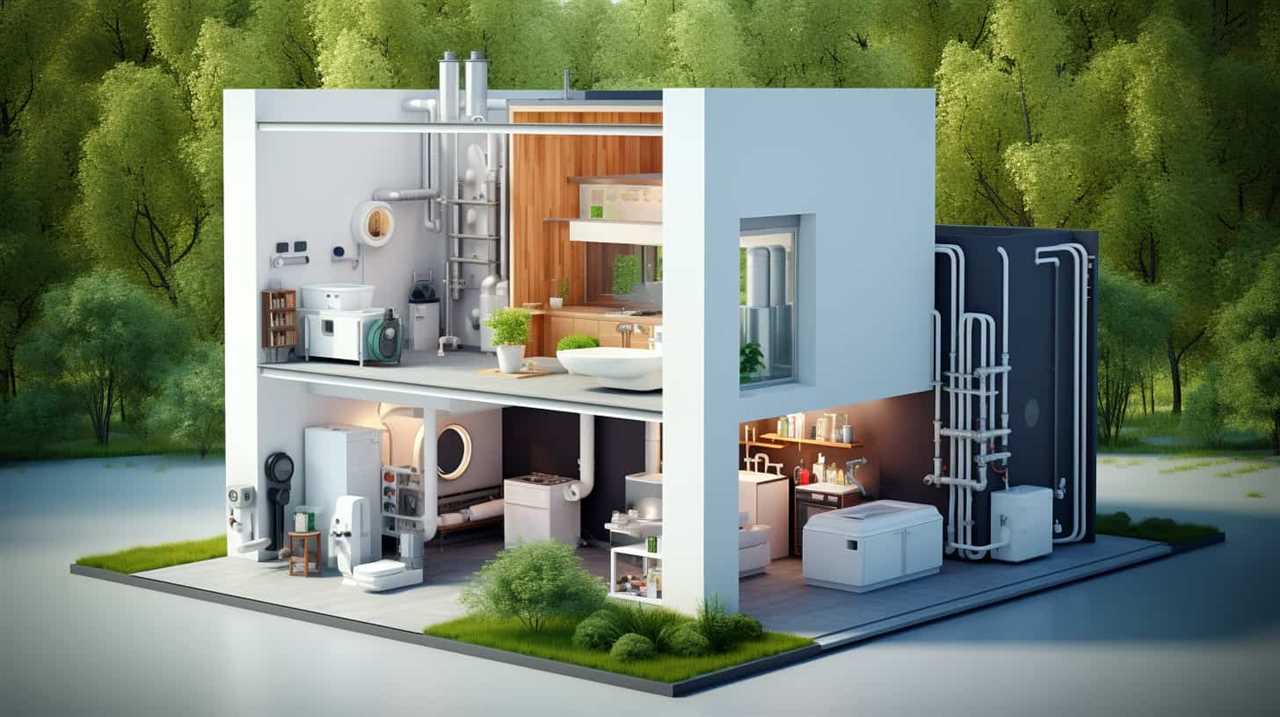
With their long lifespan and durability, heat pumps not only provide comfort and energy efficiency but also contribute to increased home value.
Increased Home Value
When it comes to residential heat pumps, homeowners can expect not only the benefits of energy efficiency and cost savings, but also an increase in their home’s value.
Studies have shown that homes with heat pumps have higher property resale values compared to those without.
Additionally, heat pumps enhance the marketability of a home, making it more attractive to potential buyers.
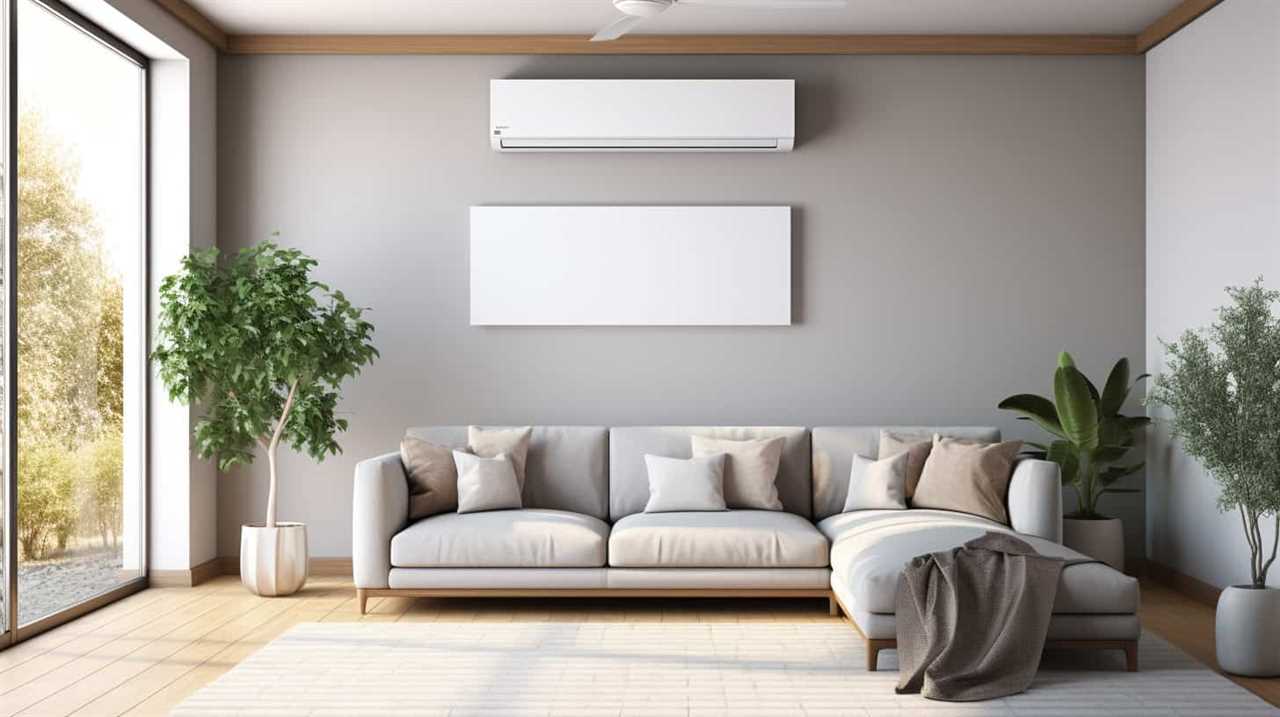
Higher Property Resale Value
Installing residential heat pumps can lead to a significant increase in our home’s property resale value. This is especially beneficial in today’s competitive property market, where homeowners are constantly looking for ways to maximize their real estate investment.
Here are three reasons why residential heat pumps can contribute to higher property resale value:
-
Energy Efficiency: Residential heat pumps are known for their energy-saving capabilities. By reducing energy consumption and lowering utility bills, potential buyers are more likely to see the long-term cost savings and value in a home with a heat pump.
-
Enhanced Comfort: Heat pumps provide both heating and cooling capabilities, ensuring year-round comfort for homeowners. This added convenience and comfort can significantly increase a property’s appeal to potential buyers.
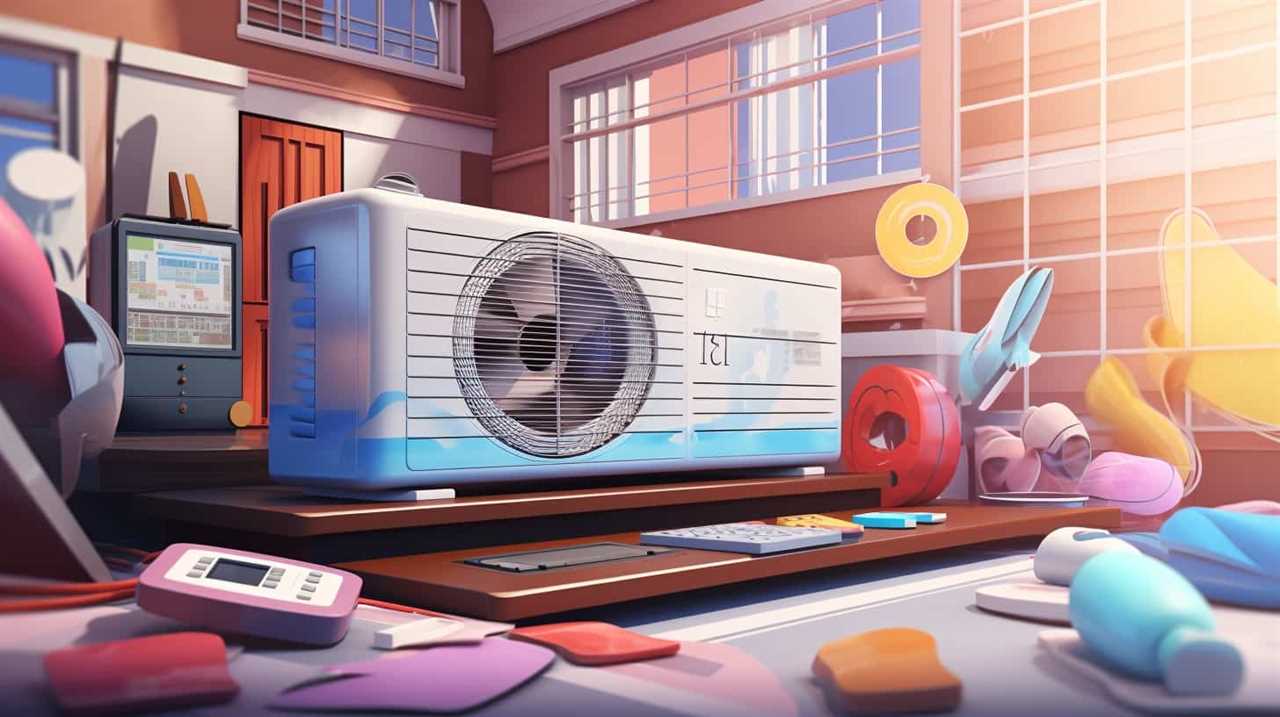
-
Green Home Investment: With the increasing focus on sustainability and environmental responsibility, homes equipped with energy-efficient heat pumps align with the values of many buyers. This green feature can make a property more attractive and potentially increase its resale value.
Enhanced Home Marketability
By increasing a home’s energy efficiency and comfort, residential heat pumps can enhance the marketability and value of our property. With the rising interest in sustainable living and energy-efficient homes, buyers are actively seeking properties that offer long-term cost savings and reduced environmental impact.
Residential heat pumps meet these criteria, making them an attractive feature for potential buyers. According to a study conducted by the National Association of Realtors, homes with energy-efficient features tend to sell faster and at a higher price point than comparable homes without these features. This increased buyer interest can give homeowners a competitive advantage in the real estate market.
Versatility for Different Climates and Regions
The versatility of residential heat pumps makes them an ideal solution for different climates and regions. They offer significant benefits in terms of energy consumption and climate adaptability.
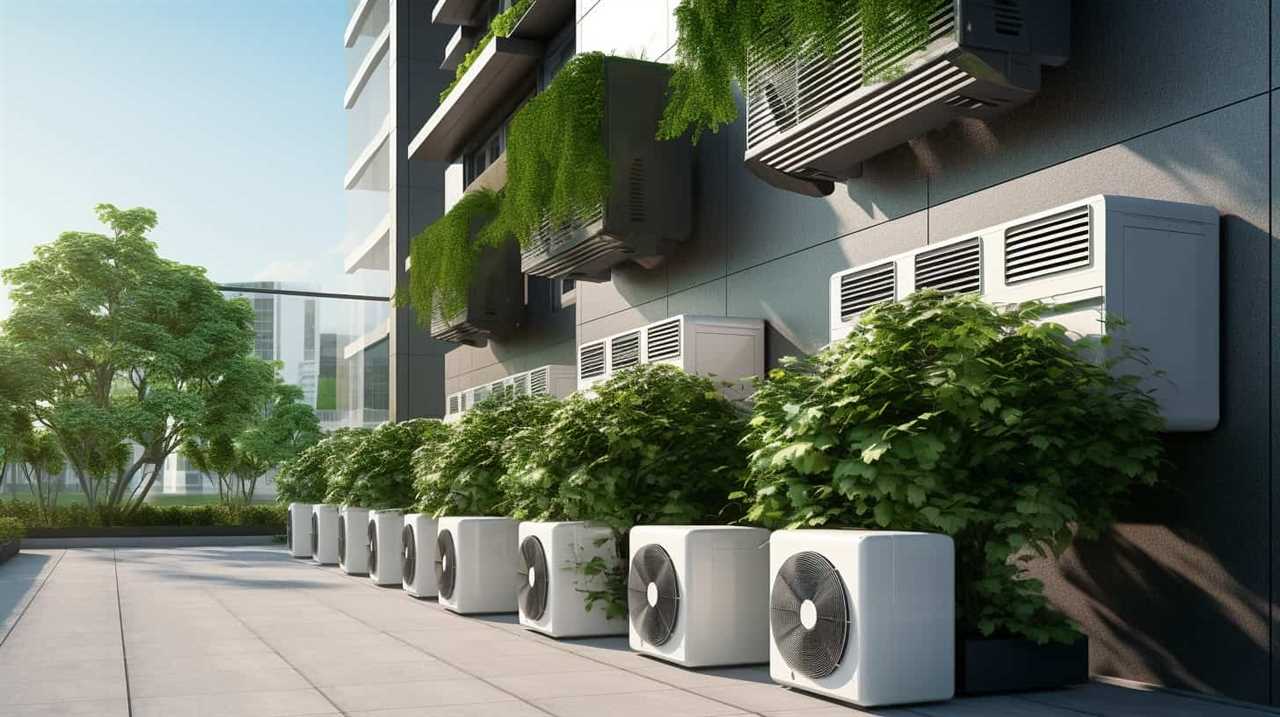
Here are three reasons why residential heat pumps are versatile for different climates and regions:
-
Energy Efficiency: Residential heat pumps are highly efficient in converting energy into heat, making them an energy-saving option for homeowners. They can reduce energy consumption by up to 50% compared to traditional heating systems.
-
Climate Adaptability: Heat pumps can provide both heating and cooling, making them suitable for regions with varying climate conditions. They can efficiently provide warmth during cold winters and cool air during hot summers, ensuring year-round comfort.
-
Zone Control: Heat pumps can be installed with zone control capabilities, allowing homeowners to regulate temperatures independently in different areas of the house. This feature is particularly beneficial for regions with fluctuating temperatures or varied comfort preferences.
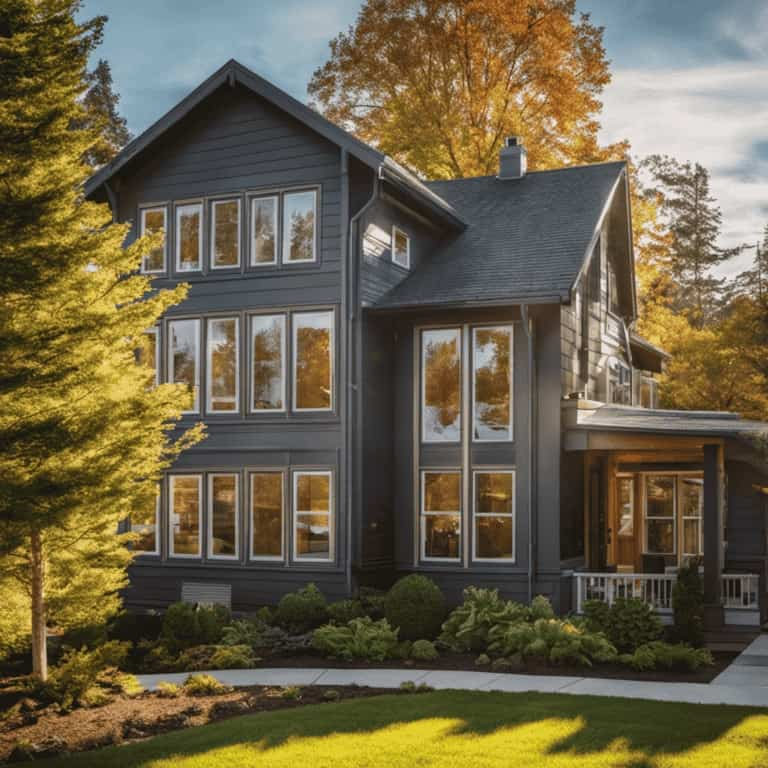
Frequently Asked Questions
Are Residential Heat Pumps Suitable for Both New Constructions and Existing Homes?
Residential heat pumps are suitable for both new constructions and existing homes. They provide energy-efficient heating and cooling solutions, reducing utility costs and environmental impact. Installation costs may vary depending on the existing infrastructure.
How Noisy Are Residential Heat Pumps During Operation?
Residential heat pumps vary in noise level during operation. Regular maintenance can help minimize noise. It’s important to consider factors such as location, insulation, and unit specifications to ensure optimal performance and minimal disturbance.
Can a Residential Heat Pump Be Used as a Standalone Heating and Cooling Solution, or Does It Require a Backup System?
Yes, a residential heat pump can be used as a standalone heating and cooling solution. It does not require a backup system. It efficiently provides both heating and cooling, making it a versatile and reliable option for homes.
Are There Any Government Incentives or Tax Credits Available for Homeowners Who Install Residential Heat Pumps?
Yes, there are government incentives and tax credits available for homeowners who install residential heat pumps. These incentives and credits vary depending on the location and may help offset the cost of installation.
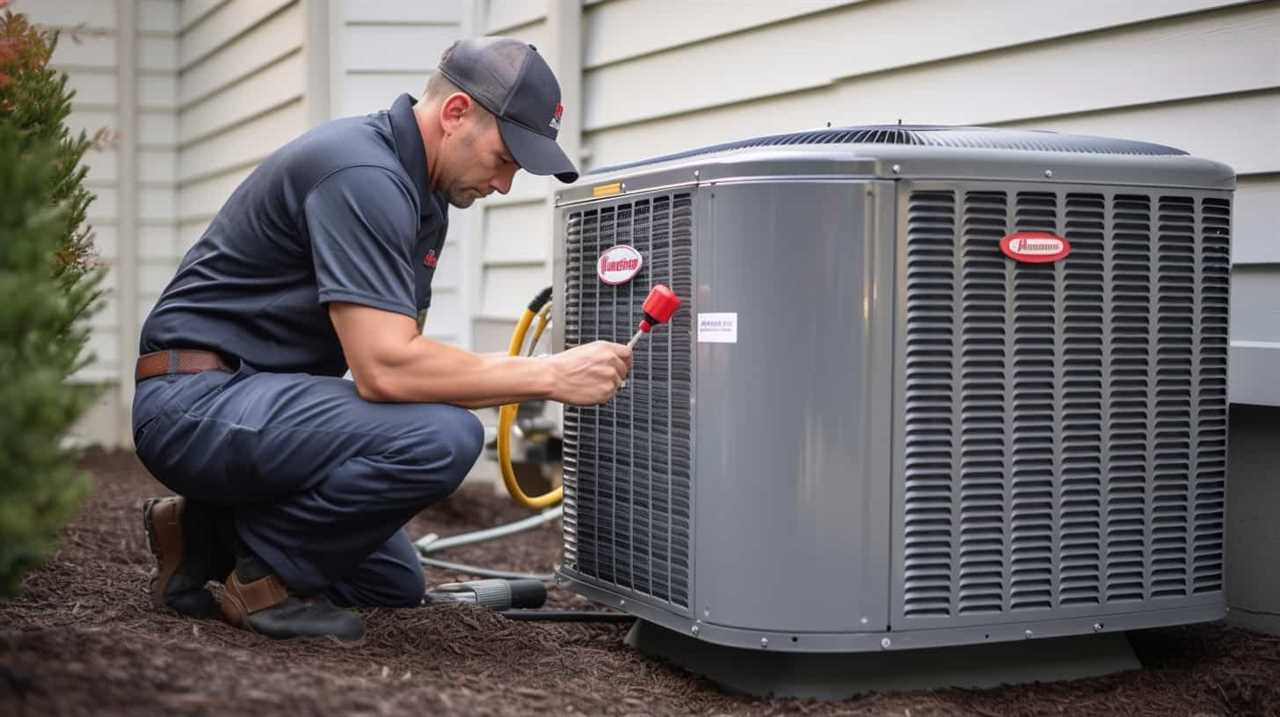
How Does the Cost of a Residential Heat Pump Compare to Other Heating and Cooling Systems, Such as Furnaces or Air Conditioners?
Residential heat pump efficiency is comparable to furnaces and air conditioners. However, when comparing installation costs, heat pumps may be more expensive upfront. It’s important to consider long-term savings and energy efficiency.
Conclusion
Overall, residential heat pumps present a compelling home energy solution. With their energy efficiency, cost savings, and reduced environmental impact, they provide year-round comfort and improved indoor air quality.
Their easy installation and maintenance, long lifespan, and durability make them a reliable choice. Additionally, their versatility allows for use in various climates and regions.
Embracing heat pumps is like inviting a gentle breeze of efficiency and comfort into your home, ensuring a pleasant living environment for years to come.
